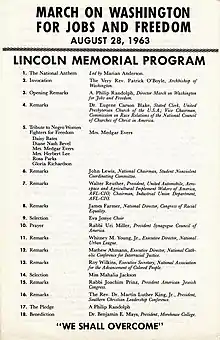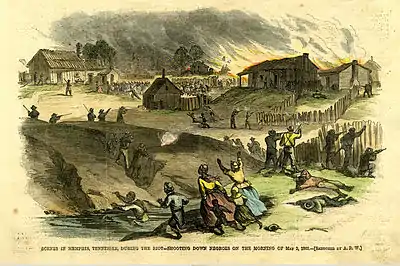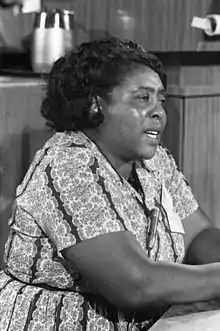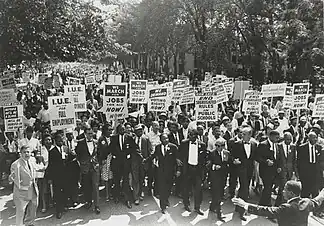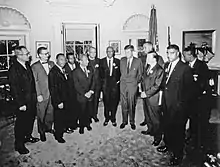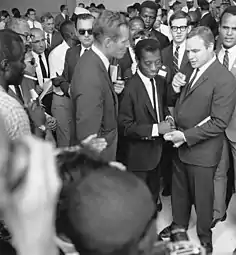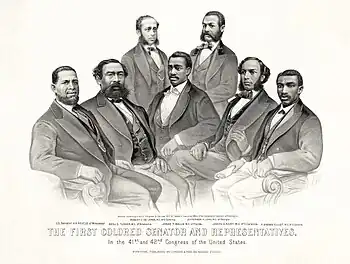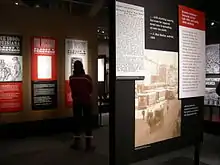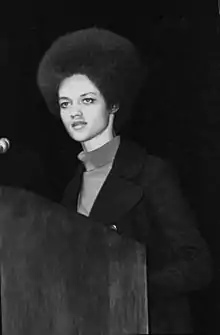The civil rights movement portal_-_NARA_-_542010.jpg.webp) The 1963 March on Washington participants and leaders marching from the Washington Monument to the Lincoln Memorial The civil rights movement was a nonviolent social movement and campaign from 1954 to 1968 in the United States to abolish legalized racial segregation, discrimination, and disenfranchisement in the country. The movement had its origins in the Reconstruction era during the late 19th century and had its modern roots in the 1940s, although the movement made its largest legislative gains in the 1960s after years of direct actions and grassroots protests. The social movement's major nonviolent resistance and civil disobedience campaigns eventually secured new protections in federal law for the civil rights of all Americans. After the American Civil War and the subsequent abolition of slavery in the 1860s, the Reconstruction Amendments to the United States Constitution granted emancipation and constitutional rights of citizenship to all African Americans, most of whom had recently been enslaved. For a short period of time, African-American men voted and held political office, but as time went on they were increasingly deprived of civil rights, often under the racist Jim Crow laws, and African Americans were subjected to discrimination and sustained violence by white supremacists in the South. Over the following century, various efforts were made by African Americans to secure their legal and civil rights, such as the civil rights movement (1865–1896) and the civil rights movement (1896–1954). The movement was characterized by nonviolent mass protests and civil disobedience following highly publicized events such as the lynching of Emmett Till. These included boycotts such as the Montgomery bus boycott, "sit-ins" in Greensboro and Nashville, a series of protests during the Birmingham campaign, and a march from Selma to Montgomery. At the culmination of a legal strategy pursued by African Americans, in 1954 the Supreme Court struck down many of the laws that had allowed racial segregation and discrimination to be legal in the United States as unconstitutional. The Warren Court made a series of landmark rulings against racist discrimination, including the separate but equal doctrine, such as Brown v. Board of Education (1954), Heart of Atlanta Motel, Inc. v. United States (1964), and Loving v. Virginia (1967) which banned segregation in public schools and public accommodations, and struck down all state laws banning interracial marriage. The rulings played a crucial role in bringing an end to the segregationist Jim Crow laws prevalent in the Southern states. In the 1960s, moderates in the movement worked with the United States Congress to achieve the passage of several significant pieces of federal legislation that authorized oversight and enforcement of civil rights laws. The Civil Rights Act of 1964 explicitly banned all discrimination based on race, including racial segregation in schools, businesses, and in public accommodations. The Voting Rights Act of 1965 restored and protected voting rights by authorizing federal oversight of registration and elections in areas with historic under-representation of minority voters. The Fair Housing Act of 1968 banned discrimination in the sale or rental of housing. (Full article...) Selected article -The 16th Street Baptist Church bombing was a terrorist bombing of the 16th Street Baptist Church in Birmingham, Alabama on September 15, 1963. The bombing was committed by a white supremacist terrorist group. Four members of a local Ku Klux Klan (KKK) chapter planted 19 sticks of dynamite attached to a timing device beneath the steps located on the east side of the church. Described by Martin Luther King Jr. as "one of the most vicious and tragic crimes ever perpetrated against humanity," the explosion at the church killed four girls and injured between 14 and 22 other people. Although the Federal Bureau of Investigation had concluded in 1965 that the bombing had been committed by four known KKK members and segregationists: Thomas Edwin Blanton Jr., Herman Frank Cash, Robert Edward Chambliss, and Bobby Frank Cherry, no prosecutions were conducted until 1977, when Robert Chambliss was tried by Attorney General of Alabama Bill Baxley and convicted of the first-degree murder of one of the victims, 11-year-old Carol Denise McNair. (Full article...)General imagesThe following are images from various civil rights movement-related articles on Wikipedia.
Related portalsWikiProjects
Selected biography -
Samuel Wilbert Tucker (June 18, 1913 – October 19, 1990) was an American lawyer and a cooperating attorney with the National Association for the Advancement of Colored People (NAACP). His civil rights career began as he organized a 1939 sit-in at the then-segregated Alexandria, Virginia public library. A partner in the Richmond, Virginia, firm of Hill, Tucker and Marsh (formerly Hill, Martin and Robinson), Tucker argued and won several civil rights cases before the Supreme Court of the United States, including Green v. County School Board of New Kent County which, according to The Encyclopedia of Civil Rights In America, "did more to advance school integration than any other Supreme Court decision since Brown." (Full article...)
Selected image - Missing persons poster created by the FBI in 1964, signed by the Director J. Edgar Hoover. Shows the photographs of Andrew Goodman, James Chaney, and Michael Schwerner. All three were found to have been later murdered by local White Knights of the Ku Klux Klan, and the Neshoba County Sheriff's Office as well as the Philadelphia, Mississippi Police Department were involved in the incident. Did you know?
TopicsSubcategoriesCategory puzzle Select [►] to view subcategories
Civil rights movement People involved with the civil rights movement Martin Luther King Jr. Black Panther Party Civil rights movement case law Civil rights movement in popular culture Little Rock Nine Montgomery bus boycott Monuments and memorials of the civil rights movement Civil rights movement museums Nashville Student Movement Selma to Montgomery marches Southern Conference Educational Fund Student Nonviolent Coordinating Committee Students for a Democratic Society Works about the civil rights movement Civil rights movement stubs Select [►] to view subcategories
WikiProject Civil Rights Movement WikiProject Civil Rights Movement articles Civil Rights Movement portal WikiProject Civil Rights Movement participants Things to doAssociated WikimediaThe following Wikimedia Foundation sister projects provide more on this subject:
Discover Wikipedia using portals
|
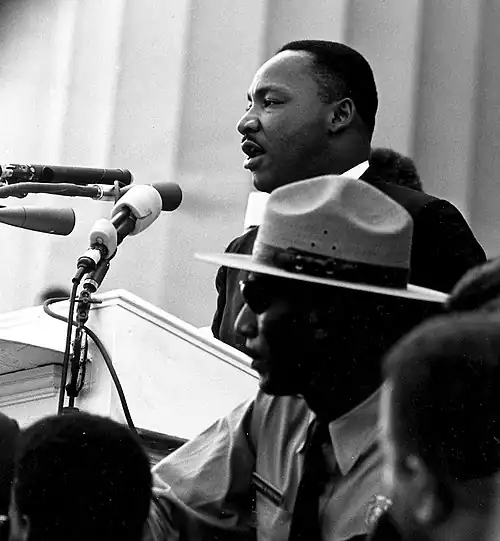
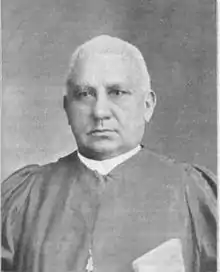
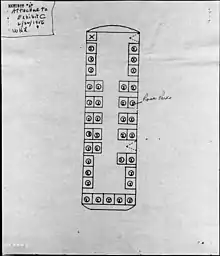
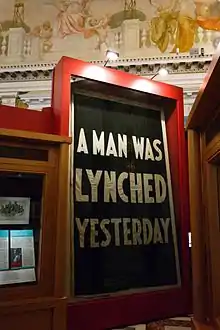
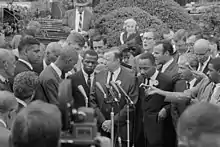
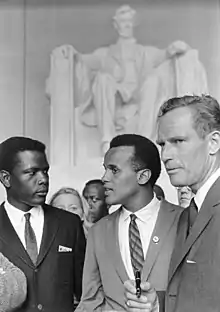
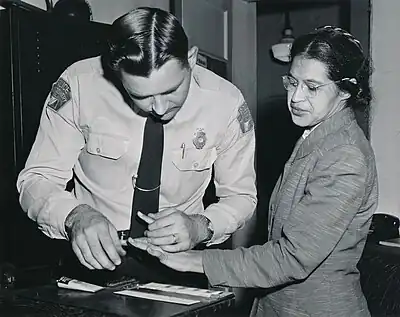
_-_NARA_-_542019.jpg.webp)
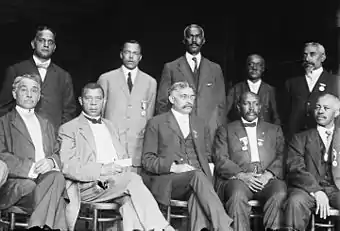
_-_NARA_-_542056.jpg.webp)
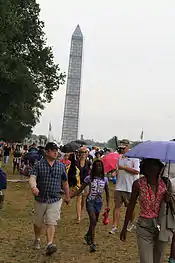
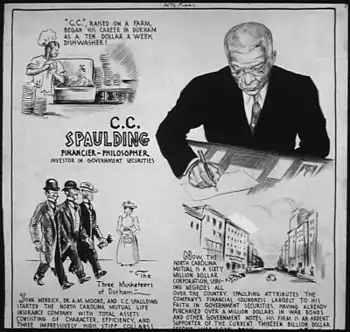
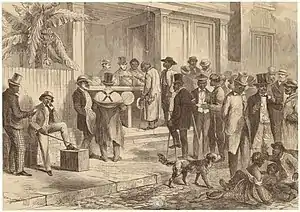
.jpg.webp)
.jpg.webp)
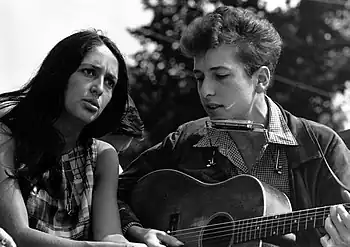
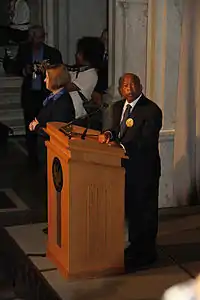
_-_NARA_-_542018.jpg.webp)
.jpg.webp)
